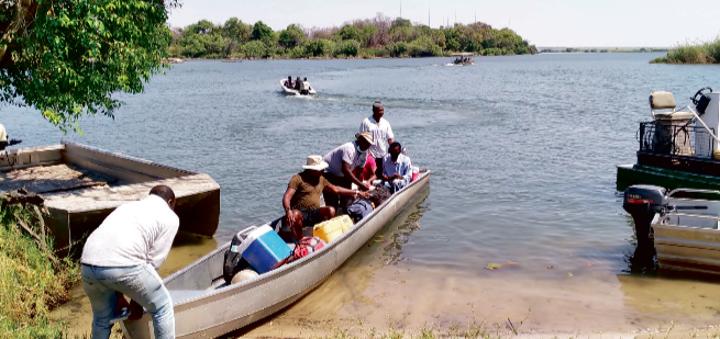Africa-Press – Namibia. “WE are seeing light after 31 years, we no longer have to dry our fish and meat to keep them from going rotten.”
These are the sentiments of some Impalila Island residents, after the area was chosen as one the beneficiaries of the government’s Rural Electrification Project, alongside Ibolokwa, Kalundu, Sabelo and Muyoba.
The islanders, who mostly earn a living from fishing and subsistence farming, welcomed the electrification project as a much needed necessity and development boost in the area.
“It is truly a great blessing for us. I thought I would be using firewood to cook all my life. However, the government has changed my life in my old age. My food can now last longer because I can store it in the fridge. I can now save money because I don’t have to consume food fast in fear of it going rotten,” says Patrick Simataa (60) from Ibolokwa village.
According to Simataa, property will no longer be destroyed by elephants, as had occurred in the past, because the lights keep the wild animals away. He thanked the government for the electrification project and also pleaded that all other villages are also electrified because he said he could not be fully happy while his fellow men are still suffering without electricity.
A villager from Ibolokwa, Rochester Simataa (47), noted that all her life she has been unemployed and has survived by selling fish. Business was not going well though, as most of her fish used to go rotten.
“Now that we have electricity at my village, I will be able to run my business smoothly without fear of my fish going rotten. This makes me very happy.”
Simataa says she now has plans to expand her business. She will no longer only sell fish from the river but will also purchase some from the Namibia Fish Consumption Promotion Trust’s fish shop at Katima Mulilo to resell.
During summer time, she plans to sell home-made ice pops to school pupils and villagers, as well. As for Julia Simasiku (44), a shebeen owner from Kalundu village who also spoke to The Namibian, her customers are now enjoying cold beverages and she also earns a fair profit, unlike in the past.
“I am now saving money because I no longer have to buy gas or petrol from Kasane/Katima Mulilo to [power] my fridges. My business can operate fully because it does not have to close early, since there is electricity.
“We can now also buy food items like ice cream, milk, butter, fruit and vegetables to store in our fridges.”
A villager from Sabelo, Matilde Matengu (47) old The Namibian that she is very happy because her children are now enjoying watching cartoons at the village, unlike in the past when they only did so at Katima Mulilo.
“Especially, now during the holidays, the children are passing time by watching TV. I am now also cooking on my electric stove, and we can buy frozen goods to keep in our fridges as long as we buy electricity.
“So, our lives have changed for the better,” she said.
President Hage Geingob inaugurated the Impalila Island Rural Electrification Project recently and noted that electricity plays a vital role in socio-economic development as it powers machinery, fuels businesses, lights homes, as well as enables families to stay connected.
He then added that the government is aware that the local communities have limited access to electricity and depend mostly on solar gas, while some households have no access to solar technology, or gas.
“Thanks to the resolve of the government, the construction of the 60 kilometers long overhead line, which starts at Ivilivinzi to Impalila Island, connecting the localities of Mbalasinte and Kasika, has ensured that these communities are not left behind,” he said.
According to Geingob, with the electrification of Impalila and surrounding areas, villagers will now be able to increase the number of hours they can undertake economic activities, as well as boost the tourism industry which has been negatively affected by the Covid-19 pandemic.
“The implementation of the rural electrification programme should continue on this trajectory and be extended to all areas where electricity has not yet reached our communities. The electrification of more communities will not only contribute towards the achievement of our set national developmental objectives, but will bring us closer to the industrialisation of our country,” he said.
The island, which is only accessible by boat, has a police station, a school, a clinic and other government institutions. Besides the electricity boost, several roads are also being upgraded on the island.
Recently, Profysen Muluti, the deputy chairperson of the Road Authority board, revealed that the upgrading of 21 kilometre of access roads on the island is currently ongoing and expected be completed within two years, at a cost of N$60 million. There are also plans to construct a road connecting Katima Mulilo to Impalila Island via Kasika and Nakabolelwa, he said.
For More News And Analysis About Namibia Follow Africa-Press






